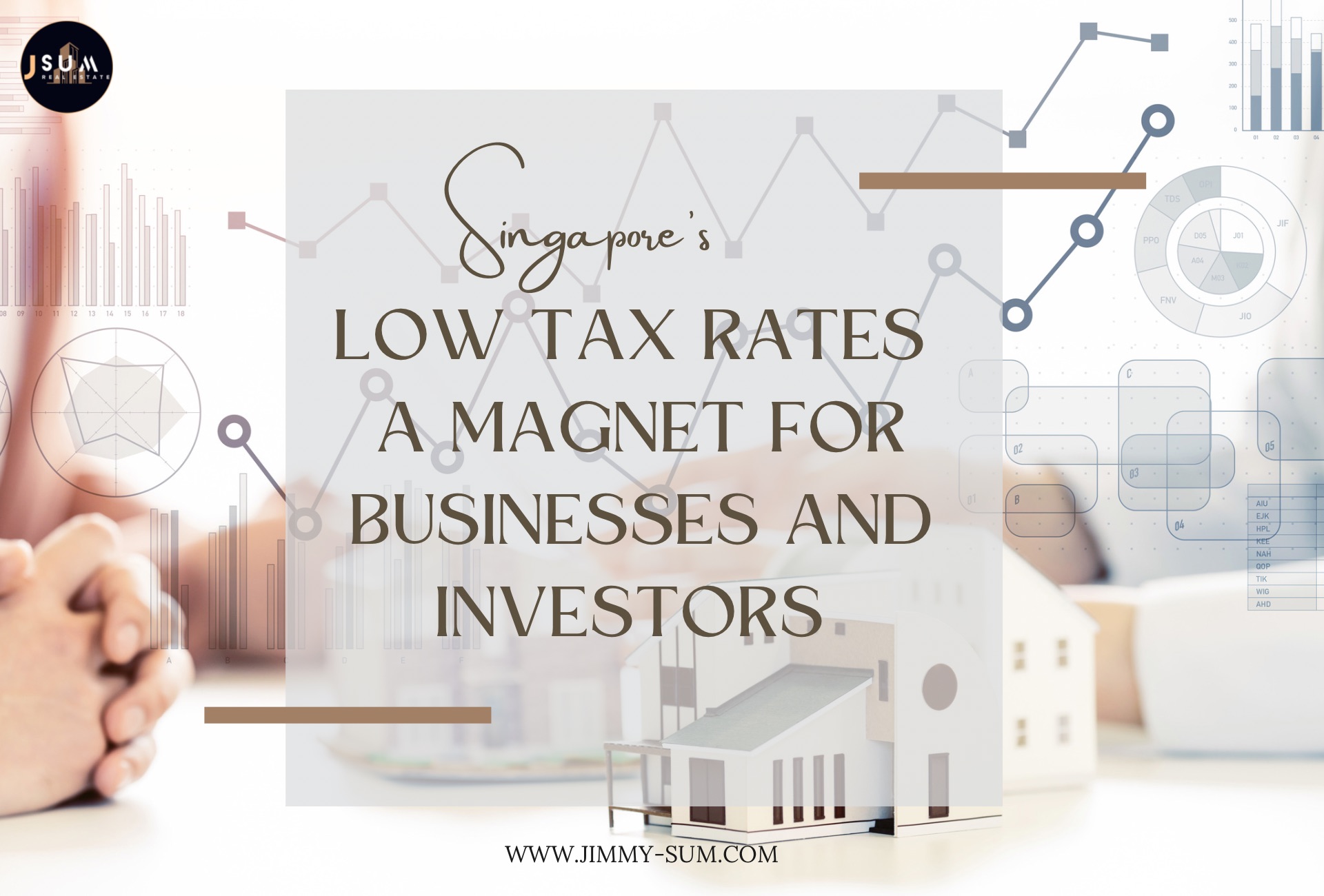I. Introduction
Singapore’s low tax rates have earned it the reputation of being a magnet for businesses and investors worldwide. With its attractive tax regime, the nation has positioned itself as an ideal destination for companies aiming to maximize profitability and establish a foothold in Asia. This blog post delves into the appeal of Singapore’s low tax rates, examining the advantages and benefits they offer to businesses and investors.
II. Overview of Singapore’s Tax System
To understand why Singapore’s low tax rates are so enticing, it is crucial to have an overview of the country’s tax system. Singapore has a competitive corporate tax rate of 17%, making it one of the lowest in the world. Additionally, it employs a territorial tax system, which means that only income earned within Singapore is subject to taxation. Profits earned from overseas subsidiaries or branches are generally exempt from tax, promoting international business expansion.
In addition to corporate tax, there are other types of taxes in Singapore, including personal income tax and goods and services tax (GST). While personal income tax rates are progressive, they remain relatively low compared to many other countries. The GST, currently set at 8%, is a consumption tax that applies to most goods and services in Singapore.
III. Benefits of Singapore’s Low Tax Rates
The low tax rates in Singapore offer businesses and investors several significant advantages. Firstly, they improve companies’ bottom lines by reducing tax liabilities and increasing profitability. With the ability to allocate more resources toward innovation, expansion, and talent acquisition, businesses can reinvest in their growth and achieve long-term success.
Singapore’s low tax rates also make it an attractive choice for foreign investors and multinational corporations. It serves as a strategic gateway to Asia, offering easy access to a robust regional market. Moreover, companies establish their regional headquarters in Singapore to benefit from its stable business environment, excellent infrastructure, and skilled workforce – all while taking advantage of its competitive tax rates.
The business-friendly tax regime in Singapore contributes to the ease of doing business. It simplifies the bureaucracy and minimizes red tape, providing a conducive environment for entrepreneurs and startups to flourish. The tax system’s transparency and predictability further enhance the nation’s appeal and attract global talent and investments.
IV. Tax Incentives and Exemptions Available
Singapore offers a range of tax incentives and exemptions to further encourage businesses to set up and operate in the country. These incentives are designed to promote specific industries, foster innovation, and attract foreign investments. Here are some notable tax incentives and exemptions available in Singapore:
- Pioneer Certificate Incentive: This incentive provides a substantial tax exemption on qualifying income for businesses engaged in pioneering activities in Singapore. Pioneering activities include the development of new industries, services, or products.
- Development and Expansion Incentive (DEI): The DEI aims to attract companies in targeted industries to establish or expand their operations in Singapore. Businesses can enjoy partial tax exemption on qualifying income derived from their designated activities.
- Global Trader Program (GTP): The GTP provides tax incentives for qualifying companies engaged in global trading activities. These incentives include reduced tax rates on trading income and subsidies for qualifying trading-related expenses.
- Research and Development Tax Incentives: Singapore offers various tax schemes to encourage research and development (R&D) activities. These schemes include tax deductions for qualifying R&D expenses and the Productivity and Innovation Credit (PIC) scheme, which provides tax benefits for qualifying expenditure on innovation and automation projects.
- Double Tax Deduction for Internationalization (DTDi): The DTDi scheme allows businesses to claim double tax deductions on qualifying expenses incurred when expanding into overseas markets, thus providing cost savings for internationalization efforts.
These tax incentives and exemptions provide businesses with valuable opportunities to reduce their tax burdens and reinvest their savings back into their operations, research, and growth initiatives. They showcase Singapore’s commitment to supporting and incentivizing businesses in strategic sectors.
V. Case Studies and Success Stories
To illustrate the impact of Singapore’s low tax rates on businesses and investors, here are some notable case studies and success stories:
- Procter & Gamble (P&G): P&G established its regional headquarters in Singapore, attracted by its low tax rates and business-friendly environment. The company cited Singapore’s tax advantages as a key factor in its decision to expand its operations and invest in Singapore. P&G’s presence in Singapore has resulted in job creation and the transfer of knowledge and expertise.
- Dyson: The multinational technology company, Dyson, chose Singapore as its global manufacturing hub for electric vehicles. Singapore’s low tax rates and incentives, combined with its advanced infrastructure and skilled workforce, played a pivotal role in Dyson’s decision. The investment not only contributes to Singapore’s economy but also promotes technological advancements and sustainability.
These case studies demonstrate the success that businesses have achieved by leveraging Singapore’s low tax rates. With a firm commitment to nurturing innovation and attracting investments, Singapore continues to be an appealing destination for businesses seeking growth, expansion, and long-term success.
VI. Conclusion
Singapore’s low tax rates and robust tax incentives make it a highly attractive destination for businesses and investors. The country’s business-friendly tax system, coupled with its stable economic environment and strategic location in Asia, offers numerous advantages to companies seeking to establish a presence in the region.
By providing competitive corporate tax rates, tax incentives for various industries, and exemptions for specific activities, Singapore has consistently lured businesses from around the world. The benefits of Singapore’s low tax rates extend beyond immediate cost savings by fostering innovation, growth, and job creation.
As businesses thrive within Singapore’s low tax environment, they contribute to the country’s economic growth and strengthen its position as a global business hub. The tax incentives and exemptions available further enhance Singapore’s appeal and demonstrate its commitment to facilitating business expansion, attracting foreign investments, and promoting sustainable economic development.
In summary, Singapore’s low tax rates, combined with its supportive business climate and strategic policies, continue to make it an unrivaled destination for businesses and investors seeking opportunities in Asia and beyond.


